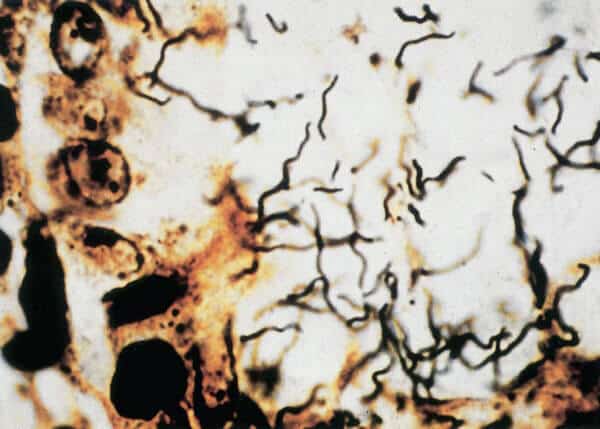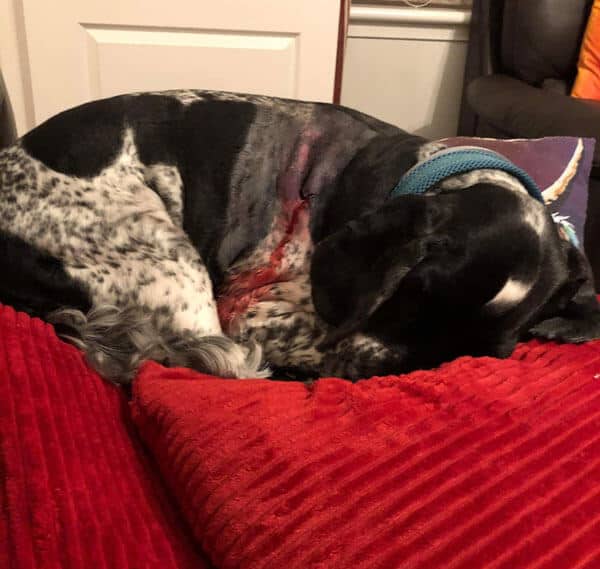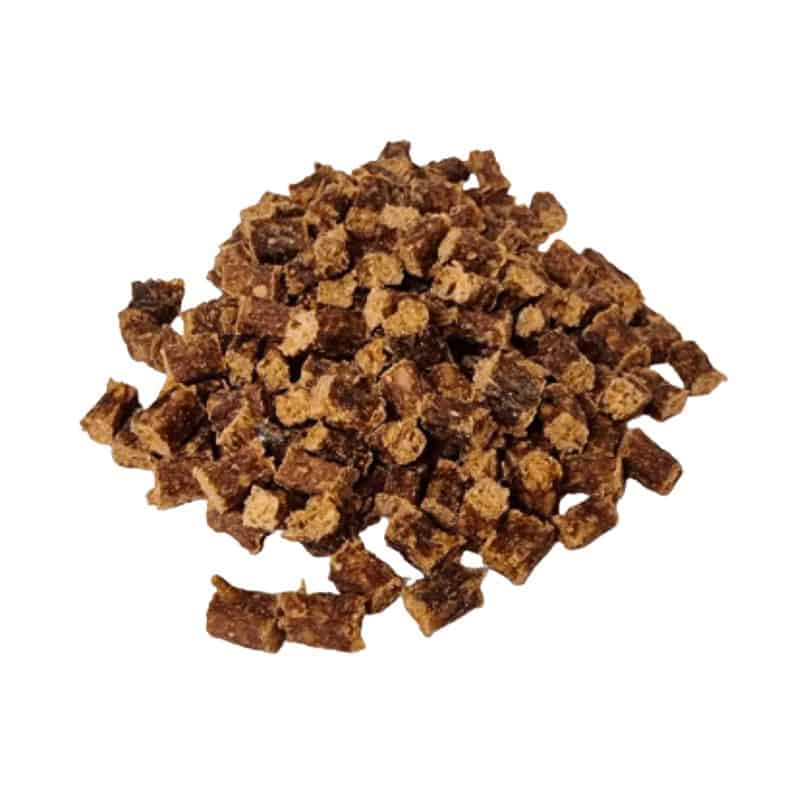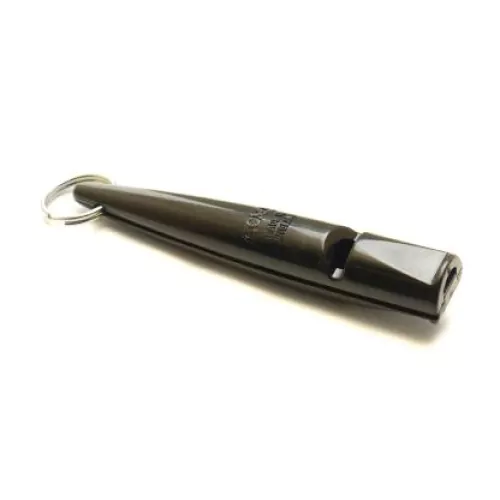Is Lepto 4 A Dangerous Vaccination?
The Real Concerns Regarding Lepto 4 and 2

Lepto 4: Probably the most controversial vaccinations currently given to dogs.
It is the one that is generally given annually rather than every three to four years as is the case with the normal core vaccines Distemper, Parvovirus, and Canine Hepatitis, DPH
Were you aware that annual vaccinations for these core diseases were changed in 2010? (1) Annual Dog Vaccination Dangers
It is believed that the reported side effects and dramatic reactions to the Lepto 4 vaccine are massively underreported and the figures are further distorted by lumping them together with the core vaccines. Leptospirosis has NOT been a notifiable disease in dogs since 2010. Yet Leptospirosis also known as Weil’s disease in humans is.
How Leptospirosis is Transmitted:
Leptospirosis is a bacterial infection that has over 250 serovars Leptospirosis affects dogs, most mammals and humans and is what is called Zoonotic, which means it can be transmitted across species so we can give it to other mammals and mammals can pass it on to us.
It is worldwide but is most prevalent in warm wet and humid countries that experience heavy rainfall. Think monsoon countries like India, Thailand, or The Amazon.
The bacteria can be found in puddles, stagnant water, and moist soil that has been infected by the urine of an infected animal. Leptospirosis is also transmitted by drinking infected water, through open wounds and through mucus membranes like the eyes and nose.

The commonest mammals for transmitting this disease are rodents though any mammal can transmit or catch it.
Leptospirosis also called Weil’s disease is rare in the UK. In humans, there are only on average 50 cases a year and it is not common in dogs regardless of what your Vet tells you. There are no vaccines for humans. (2) Animal Welfare Report
Treatment:
Leptospirosis is easily treated. Doxycycline is the antibiotic of choice and has the ability, even in renal compromise, to effectively rid the urinary tract of Leptospira infection. Doxycycline can be safely administered to dogs with renal insufficiency and will clear the organism from the kidneys, making it effective in both the infection of the blood and urine
What Are The Signs?
- Fever (high temperature)
- Jaundice (yellow gums and eyes)
- Muscle pain and limping
- Weakness and collapse
- A reduced appetite
- Increased water intake
- Vomiting
- Bloody runny stools
- Bleeding from the mouth and eyes
- Ulcers in Mouth
- Difficulty breathing.
What Does The Leptospirosis Vaccines Cover?:
Lepto 2 covers 2 of these Serovaars (Strains) and Lepto 4 covers 4
This is directions given to all Vets from the VMD the governments Veterinary Medicines Directorate

“The veterinary surgeon and the client should discuss and agree a vaccination programme for an individual animal.
This should be based on the local epidemiological situation and risk of leptospirosis, balanced with the potential risks as outlined in the SPC. “
“Careful consideration should be given to whether the additional protection provided by vaccines containing four strains of Leptospira versus those containing two is necessary in each individual dog, depending on their individual circumstances.
“Dogs that travel from the UK to mainland Europe where there is a known risk of infection with Bratislava and Grippotyphosa should be vaccinated with all four strains.”
This is not happening. Vets are vaccinating dogs with Lepto 4 whatever age and whether they intend to take the dogs abroad in the next 12 months or not. That begs the question why are they exposing our dogs to known reactive vaccines that are unnecessary and frankly dangerous and why are they not following the VMD Directions. Has your Vet ever discussed this with you? Here is the (3) VMDs Advise on the Government website.
Lepto 2 and Lepto 4:
Lepto2 vaccine has a less aggressive reaction than Lepto4, which suggests that either Lepto 3 or Lepto 4 are the culprits regarding these increased adverse reactions. Though Lepto 2 also has numerous reactivity problems.
Research tells me that the L3 part has never been found in the UK and L4 serovars are also not normally found in the UK. If that is the case then at least one quarter or even half of the L4 highly reactive vaccine is totally unnecessary.
That begs the question why are we vaccinating against serovars that are not endemic to the UK. The L3 carrier is a vole that has never been seen in the UK.
The leptospirosis vaccines are made by Nobivac MSD animal health, a subsidiary of Merck. a multibillion-dollar pharmaceutical company. I wrote to MSD 3 weeks ago they told me they would get back to me within 24 hours on why they are marketing a controversial vaccine in the UK when one half of it is either incredibly rare or totally none existent. I wrote again. The silence is deafening. So I wrote again and still nothing. This is their email address [email protected].
Everyone should contact them if they have a concern about Lepto vaccinations you should also report to them if you have a dog ill from having their vaccine. Keep a record of their replies. I have placed a copy of my email at the bottom of this article which was sent twice.

Nobivac Lepto 4 vaccine was introduced in 2014, there were over 2000 adverse reactions, and 120 suspected deaths were reported to the VMD who regulate animal drugs in the UK.
The VMD states that adverse reactions are rare at 0.064% However; adverse reactions are massively underreported. Unfortunately, the Vets are not going to kill the goose that lays golden eggs. I
t is almost impossible to get most vets to acknowledge an adverse reaction, to a vaccine, drug, or any other treatment.
Leptospirosis vaccines contain inactivated, whole-cell leptospires, basically whole-cell bacterin vaccines killed, it then requires stimulants to create an immune response. These stimulants include aluminium hydroxide and mercury making it more likely to cause an immune response on the recipient of that vaccine.
However, it’s important to note that there is a peracute (very sudden) form of the disease where animals go into rapid shock and die. Very sadly, neither vaccination nor antibiotics will save these cases.
MSD is a trading name and a subsidiary of Merk who manufacture L2 and L4 vaccines. They funded a 2014 project headed by Christopher Ball from the University of Liverpool. A questionnaire was sent out to veterinary practices in the UK for his thesis. Of the 472 questionnaires sent out, only 89 were returned.
Of these, by far the largest response came from vet practices which had seen no lepto cases in the previous twelve months. Only 13 practices reported a case within the last twelve months, of which only five had lepto confirmed by a laboratory test. An additional 29 practices reported seeing lepto cases within the last 15 years. No practice had seen more than a single case within the span of a year.
The reported incidences of leptospirosis were, extremely low, with only five cases being found in the 89 practices that responded over a 12-month period. Therefore why did MSD bring out Lepto4 in 2014? They totally ignored the finding from the research that they had paid for. Is it any wonder why the large pharmaceuticals are treated with mistrust and disbelief?
Do we think it was in the best interests of the dogs? Or do we believe it was for the best interests of the insanely profitable pharmaceutical company? I explained earlier how prevalent the L3 and L4 serovars are in the UK and it may just answer those questions.

Most veterinary experts agree the lepto vaccine is the one that’s most likely to cause serious adverse events.
Events such as sudden death and autoimmune disease that the European Medicines Agency had already reported.
The WSAVA even claims that leptospirosis vaccines “can be associated with adverse reactions” and are “associated with as many or more adverse reactions than occur for any other” optional vaccine on the market”.
Vaccinated dogs can shed lepto from the vaccine in their urine. This means they can infect other dogs or even you because they are vaccinated. Therefore, annual lepto vaccinations can actually increase the incidence of lepto. Does that sound logical??
Vaccinating does not prevent your dog from getting leptospirosis, it is only meant to lessen the severity of the illness. (3) Canine Health Concern, observed and analysed the history of over 3,800 dogs post-vaccination, they found that every single dog in the study with leptospirosis, contracted it within three months of the vaccination, which suggests we may be actually making our dogs more susceptible to what is an extremely rare disease?
The WSAVA Guidelines suggest that vaccination against leptospirosis should be restricted to geographical areas where a significant risk of exposure has been established or for dogs whose lifestyle places them at risk.
British Small Animals Veterinary Association (BSAVA) recommends that, in the UK, core vaccines for dogs should include leptospirosis Given all the concerns and the rarity of Leptospirosis for dogs and humans in the UK why has it recommended these actions? I will be writing to them regarding this so watch this space.
Adverse Effects:
There is a high rate of adverse effects from the lepto vaccine. Veterinarian Patricia Jordan DVM has documented several cases of tumours from the lepto vaccine, especially from combination vaccinations that include leptospirosis.
Kidney failure is another common reaction, as you’ll see below. Bacterial vaccinations can also cause autoimmune diseases. There’s a long list of other documented adverse effects from the lepto vaccine this covers some of them:
Anaphylaxis
Anorexia
Dermatitis
Infection with flesh-eating bacteria
Uncontrollable pruritis (itching)
Vomiting
Lethargy
Lameness
Vocalization
Fever
Dehydration
Polyarthritis
Kidney Failure
Liver Failure
Pancreatitis
Mast cell disease
Urinary tract infections
Diarrhoea
Chronic weight loss
Enlarged spleen
Cancer
Enlarged lymph nodes
Death

As mentioned earlier there’s no lepto vaccine licensed for humans. Why is that? Some of the reasons are that it has unacceptable side effects. Incomplete and short-lived protection, increased risk of auto-immune disease.
Even if a vaccination provided protection, it won’t prevent leptospiuria (Leptospira in the urine) so the disease can still be spread. Therefore if the lepto vaccine isn’t safe for humans why is it acceptable to give it to dogs?
I have never vaccinated my own dogs in over 50 years for Lepto. In total in my lifetime I have owned over 50 dogs not one of them has died of any core diseases.
I have run puppy classes for over 25 years probably 15000 puppies I have never known one getting any diseases they are vaccinated against. I have known them getting serious vaccine reactions especially from the L2 and L4
That of course is because they are all vaccinated as puppies. I would not allow them in the classes if they did not have the first vaccinations, though I have never required them or asked them to vaccinate for Lepto.
I am not an Anti-Vaxxer I am an Anti-Over-Vaxxer and I am intrinsically against a vaccine that has far more problems than is being reported. The problems are hidden by making the Lepto Vaccine a core vaccine when it is clearly quite rare. I am also opposed to a vaccine that may be causing more damage to our dogs than the actual disease.
Real science is telling me the truth. Dr Ronald Shultz is probably the World’s leading expert on pet vaccines. Schultz is professor and chair of pathobiological sciences at the School of Veterinary Medicine has been studying the effectiveness of canine vaccines since the 1970s so he knows a bit about vaccines; he’s learned that immunity for core vaccines like distemper (D), infectious hepatitis/adenovirus (H) and parvovirus (P) and initial vaccinations can last as long as a dog’s lifetime.
Additionally, of all of the bacterin vaccines available on the market, Dr Schultz maintains that the leptospirosis vaccine causes the most adverse reactions.
I currently own four working dogs all of them Working Cocker Spaniels. They swim most days, as trained gundogs, they work during the season and would be classed in the UK as high risk of contracting Lepto.
It is my decision to vaccinate them as puppies in two doses for DHP when they are 8 and 10.5 weeks, but never for leptospirosis and it is my decision to have a Titre Test at 1 year old and then at 7 years old. If these Titre tests show that the main core antibodies are in place I never vaccinate again.
I base this decision on current science by the leading experts in the field of pathobiological sciences and by my own observation and factual reports I have had from clients that have written to me about the problems they have had proving their dogs were affected by vaccines.
I am a member of a Facebook Page dedicated to the concern about vaccines and in particular the Lepto vaccine debacle there are over 32,000 members I think that says it all. I recommend you request to join. Nobivac Lepto4 Our Experiences
Stan Rawlinson November 2021
Dog Behaviourist and Author
(1) Annual Dog Vaccination Dangers
(3) VMDs Advice
Email Sent to MSD the manufacturers of Lepto vaccinations sent twice nearly three weeks before publishing this piece, not even an acknowledgement.
From: Doglistener.co.uk [mailto:[email protected]]
Sent: 18 November 2021 13:22
To: ‘[email protected]’
Subject: Lepto 4 enquiries 372983
Dear Sir/Madam
I am writing an article on the lepto 4 vaccine. I am sure are aware that there are over 250 Serovars Nobivac Lepto 2 covers two serovars and Nobivac Lepto 4, covers four serovars. I believe that the L3 serovars is not found in the UK.? If that is the case then one-quarter of the vaccine is totally unnecessary. If I am incorrect could you tell me the % of cases in L3 found in the UK and where I can find those statistics?
In 2013 Christopher Day from Liverpool university wrote in his thesis on leptospirosis, funded by yourselves. In that thesis a questionnaire was sent out to 472 vet clinics all around the U.K., they were asked how many cases of leptospirosis had been seen in the last 12 months. Only 89 clinic’s returned the questionnaire, the largest part reported no cases at all in the last twelve months, only 13 of the practises reported a case within the last twelve months, of which only 3 had been confirmed by laboratory tests. None of the practices in the study reported suspecting or confirming two or more cases of leptospirosis in the previous 12 months to the study.
What is really telling is the fact that Vaccinated dogs and livestock can shed lepto from the vaccination in their urine. This means they can infect other dogs and humans. So routine lepto vaccination could actually increase the threat of lepto. The greater the number of vaccinated animals, the greater the spread of lepto.
As you are aware L2 or L4 does not prevent dogs from getting leptospirosis, it is only meant to lessen the severity of the illness. Why is the general public not informed of this and why are recommendations that Lepto vaccines should only be administered to high-risk animals not being adhered to? Surely the vaccine manufacturers should inform the vets of this? Instead, it appears everyone gets the lepto jab.
Interestingly a post-vaccination survey done by Canine Health Concern, observed and analysed the history of over 3,800 dogs post-vaccination, they found that every single dog in the study with leptospirosis, contracted it within three months of the vaccination, which begs the question are we reducing the severity or actually making our dogs more susceptible to what is an extremely rare disease.
Given the bad press regarding this particular vaccine, why is it that we are vaccinating our dogs and puppies with an unnecessary serovar? As you are aware of your own research done by Christopher Ball saying he believed it should not have been classed as a core vaccine because it is so rare.
I would appreciate your comments on the above and especially the inclusion of lepto 3. And would also appreciate it reasonably quickly as I have a deadline.
Kind regards
Stan Rawlinson
Dog Behaviourist and Obedience Trainer























